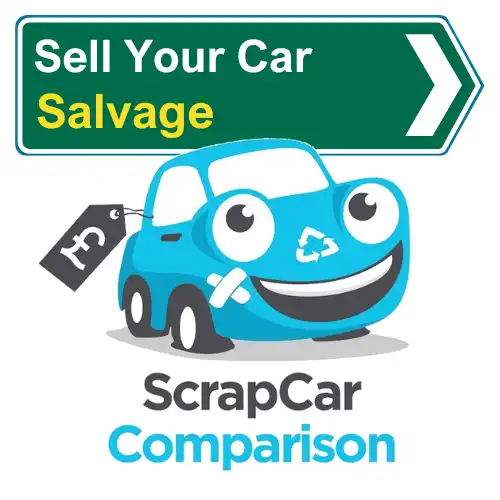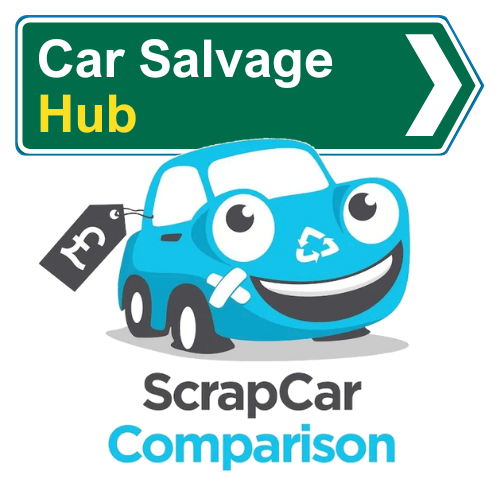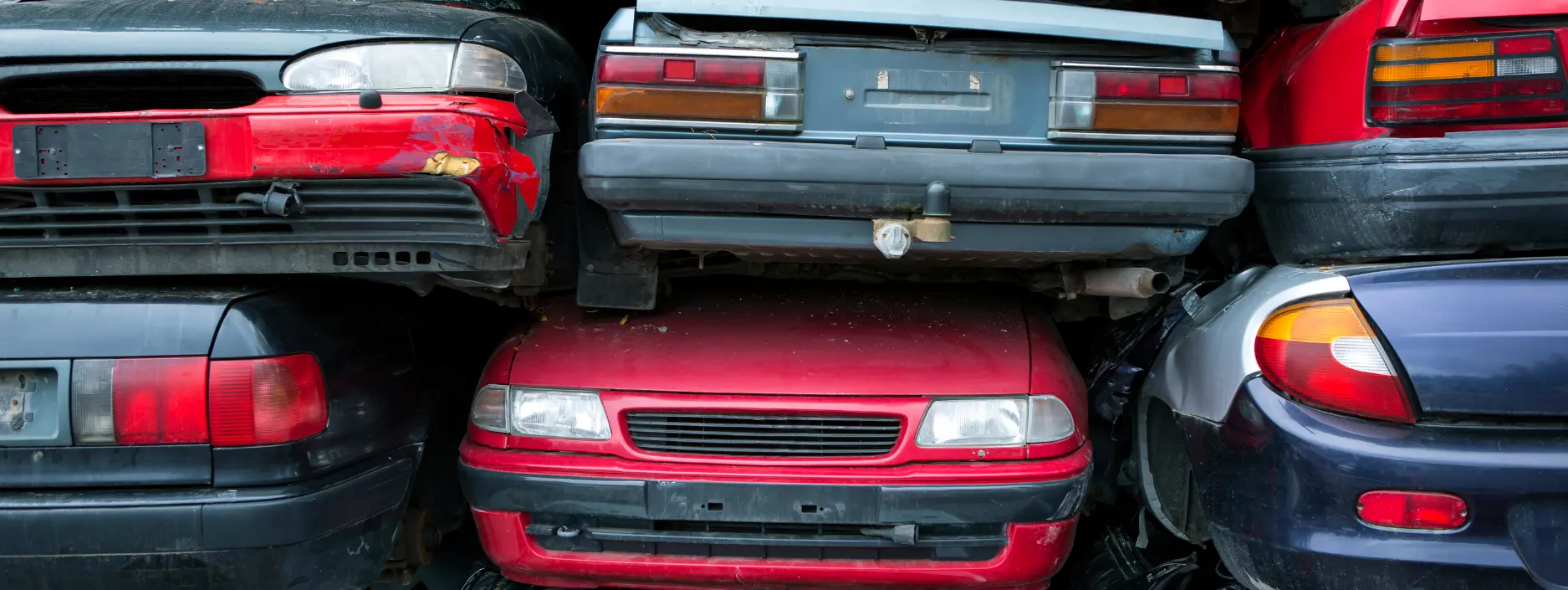Write-off – Going through your insurance
The simplest and most likely option of getting money out of a crashed car is by going through your insurance, assuming you are covered in this instance. Whether you are covered or not will depend on the type of insurance and the overall context of the incident itself.
All cars must be insured by law before they’re allowed on the road, but the legal minimum is to have “third party insurance”. This means your insurance only covers the damage to other cars in traffic collisions caused by you. In an incident situation, assuming you are the driver at fault, you are regarded as the “first party”, your insurers are the “second party” and the driver claiming against you is the “third party”. If you have “fully comprehensive” insurance, you are covered whoever the fault lies with.
What happens when you tell your insurers
When you inform your insurer of the incident, they will gather all of the necessary information required to determine who is at fault. When it comes to accidents on the road, the general consensus these days is that there is actually no such thing as an accident. You’ll hear the term “Road Traffic Collision” used by police rather than the old “Road Traffic Accident” (or RTC in place of RTA) as the word accident implies no fault, and in almost every instance, someone will be at fault in a crash on the road.
According to data provided to insurance experts NimbleFins by the Department for Transport, the most common cause of collisions in the UK is down to drivers or riders failing to look properly, accounting for over 20,000 individual incidents, or 32.7%. The next most common was reckless driving at 18.7% with drivers being unable to judge another vehicle’s path or speed at third with 16.9%.
Once the insurers have done their part, they will calculate the costs of getting your car back into a working condition and back on the road. If this cost exceeds the current value of the car in full working order (or even is just close to that value), your car will be deemed a “total loss” and will be written-off. Cars don’t even have to be heavily damaged to reach this point, and could be written off purely for cosmetic or relatively minor damages.
The meaning of insurance write-off
When it’s written-off, your insurers will keep the car and make their own scrappage arrangements for it, depending on the write-off category it falls into. Your insurer will pay your agreed settlement fee, and all you need to do is send the logbook off to your insurers and let the DVLA know your car has been written off. Failure to inform the DVLA could land you a £1,000 fine.
Your car will be written off into one of four categories. We’ve gone into greater detail on these categories before, but here’s a quick rundown for you:
Cat A: Scrap. Cars that have been listed as Cat A are beyond the point of no return. The car must be scrapped in its entirety and nothing can be taken from it.
Cat B: Break. The car itself must be scrapped and it cannot return to the road, however you may get a professional to remove any reusable parts to be used on other cars.
Cat S: Repairable with structural damage. These cars can go back to the road once they’ve been repaired, but you must re-register them with the DVLA first.
Cat N: Repairable with non-structural damage. These cars can return to the road following repairs, and while you must inform the DVLA the car was written-off in the first place, you do not need to re-register them after the repair.
You may also hear the terms “Cat C” or “Cat D”. This refers back to previous designations and cars will no longer be labelled as such, unless they already carried a Cat C or Cat D stamp before the change.
Cat C: Repairs will cost more than the car is worth. You can repair the car to get it back on the road, but it must be reregistered with the DVLA first.
Cat D: The total cost of repairs, including additional factors such as transportation, add together to a total greater than the current value of the vehicle. The car can be used again if repaired, and Cat D cars do not need to be re-registered with the DVLA before returning to the road. You must, however, inform the DVLA that the car was written-off.
Insurance Buy Back
If your car was written off into either Category S or N, then you are given the option to buy it back from your insurer. Car insurance buy back simply means you agree a price with your insurer on what the car is worth at that exact moment, taking into account the repair work needed.
In some cases, you may feel you can get the car back on the road for a reasonable price, or you may even feel like you can repair it and sell it for an even better price afterwards. Alternatively you might want to buy it back to break it down and sell it for parts.
We’ve covered insurance buy back fully previously, so visit here to find out all you need to know.
 If you are planning on buying your car back to either repair it or sell it for its parts, here’s the advice you need.
If you are planning on buying your car back to either repair it or sell it for its parts, here’s the advice you need.
Scrap it – the quick and easy option
Not all dents and scratches have to go through your insurers (or at least you don’t have to make a claim; you should always tell your insurer of any incident as per your policy wording), and you may not want to make a claim in order to protect your No Claims bonus.
In some cases, you just need an answer quickly, and scrapping it provides you exactly that. Services such as our own here at Scrap Car Comparison give you a quick and easy option to get rid of your troubled vehicle and replace it with some cash in your bank account instantly.
How is it so easy? Well, all you need to do to get a price through Scrap Car Comparison is to give us some basic information on the car and we’ll get you a quote in seconds. Our team will ask you some further questions about the car’s condition and you’ll be given a price more tailored to your specific situation. Your car will be sold, through us, to a specialist buyer of scrap and salvage vehicles.
Sell it to a breaker
So your car’s damaged, you can’t fix it, but you don’t want to see it go straight onto the scrap pile. Luckily, there are still options for you and you can still find them here at Scrap Car Comparison! While you may think we only deal with scrap due to our name, we actually help motorists with vehicles in all conditions. Yes, our buyers are experts in the scrap industry, but they’re also experts in the second-hand vehicle industry, full stop. The buyer we link you to may opt to repair it or strip it for parts rather than just send it straight to their scrap pile.
The only real difference between selling a car as scrap and selling it to a breaker is that you’ll need to give more details on the condition so they know whether it’s worth their time buying your car or not. Either way, your part in the story will be over the moment the sale has gone through. We’ll get you a buyer instantly, whether scrap or salvage, leaving you with peace of mind in an incredibly quick manner.
Do it yourself if you can
As is often the case, you could get a lot more out of your car if you’re prepared to do the work yourself. Repairing it yourself will certainly be cheaper than going to a garage and you’re definitely going to get more out of parts sold separately than if you sold it to a breaker. But, and it’s a big but, are you actually capable of carrying out this work yourself, because there’s a very fine line between you making more money and you costing yourself a lot more.
- Ability – A pretty obvious one, but do you actually know what you’re doing when you get under a car? If you don’t know exactly what you’re looking at, you could be one slight slip away from costing yourself a small fortune. That fortune could either be in a sudden loss of value in the car due to extra damages, or extra garage costs as they’ll have to undo your mistake before they get down to the original problem.
- Storage – So you’ve stripped your car of high value reusable parts, now what? Where are you going to store a gearbox or engine block? If you’ve just dumped them in the corner your garage waiting for someone to come and pick it up, chances are they’re not going to be in the condition you’d want and that sale could end much quicker than you’d hope.
- Time – Just because you can safely remove parts of a car and have somewhere sensible to store them doesn’t always mean that it’s the best bet for you. Do you need the money from your broken car quickly to move onto a new one? If so, doing it yourself probably isn’t the best bet. Yes, you’re going to get more money doing it this way, but how long will you have to wait for that cash to come in? Firstly you’ve got the time it takes to remove the parts in the first place, and then you’ve got the waiting game of someone coming to buy them. If time isn’t a concern, then this would be your best option for the greatest potential total.
If you want an instant valuation for your car in its current state, then speak to a member of our team today. We’ll let you know exactly where you stand and what you could make if you were to sell it today. All it takes is 30 seconds with our quote generator to see your quotes, so it’s a no brainer, surely?

Sell A Damaged Car As Salvage
An old or damaged car can still be valuable sold for spares and repairs – we can connect you with the right specialist buyer.
 Car Salvaging Knowledge Hub
Car Salvaging Knowledge Hub
Getting the most value out of a broken car involves finding a specialist buyer who can pay good prices for spares and repairs. Everything you need to know can be found here in our knowledge hub.

Value a salvage car
Determining the residual value of a salvage car is important whether buyig or selling. This guide walks you through everything to consider.
Scrapping VS salvaging a car
The roadworthiness of your car could make the difference between whether it’s destined for scrap or salvage, and of course the value…
Can A Salvage Title Car Be Insured?
Recently bought a salvage car and wondering whether you need to get insurance before you drive it? This guide explains all the details
What to do if you’ve written off your car
This guide walks you through everything you need to know after your car’s been totalled.

